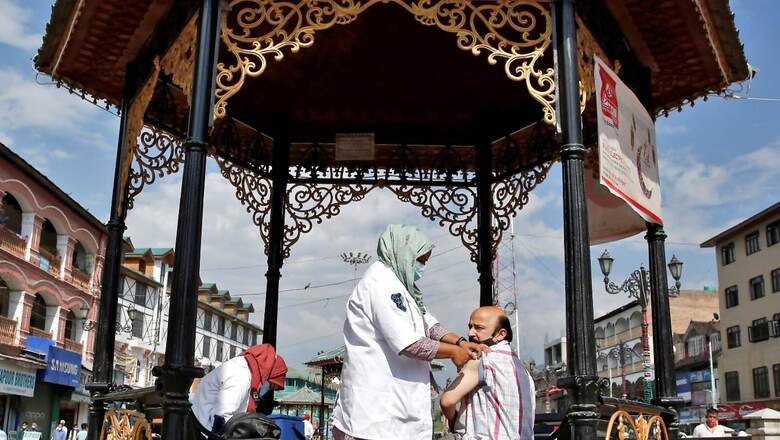
views
The study to assess the need and gap for booster doses, headed by the Department of Biotechnology’s premier institute Translational Health Science and Technology Institute (THSTI), has been extended to study the nine-month interval instead of the earlier chosen six-month gap, News18.com has learnt.
Launched in December, the purpose of the study was to assess the duration of immunity given by the vaccines used in India in the real-world scenario.
While earlier the aim was to follow up and study the samples of more than 3,000 participants for six months after they receive the second dose, now, the study has been extended further to study till nine months.
The study, sponsored by DBT, covers three vaccines used in India — Covishield, Covaxin and Sputnik V. While the objective of a booster dose is to restore vaccine effectiveness, there is no definite answer yet on the ideal spacing between the primary doses and the booster shots.
“We decided to do one more follow-up to understand the cell mediated immunity and memory cell response. So far, we were collecting data (on waning immunity) and analysing it on the premise of a 6-month gap (from the second dose),” a senior official associated with the study told News18.com.
“However, the members (involved) have decided to study the gap of nine months as the central government is following the same. Earlier, we chose six months, considering the gap was more popular globally.”
Under the study, blood samples of participants have to be drawn to assess their immunity levels at different intervals, starting from the first sample which is drawn after three months or 80-105 days from the date of receiving the second dose.
Challenges in extension of the study
The extension from six to nine months comes with its own set of disadvantages, the official said. “While it strengthens the study and can become a helpful tool for the government of India in booster policy making, we are facing challenges in convincing the participants to submit their blood samples once again,” he said.
Reason: It is an academic study and not a company funded clinical trial where participants are paid for every visit to the centre for follow-up checks.
“We are not paying participants anything unlike the companies do in vaccine trials and hence, there is no motivation for them to donate 4-5ml of blood in intervals. We have been trying to convince them that the study is being done in national interest.”
While a fall in participants for the nine-month gap can be seen in the study due to drop-outs, the officer said, the data can be very helpful in deciding the future course of action with respect to dose spacing.
Read all the Latest India News here




















Comments
0 comment